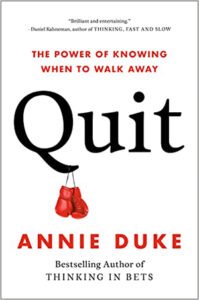|
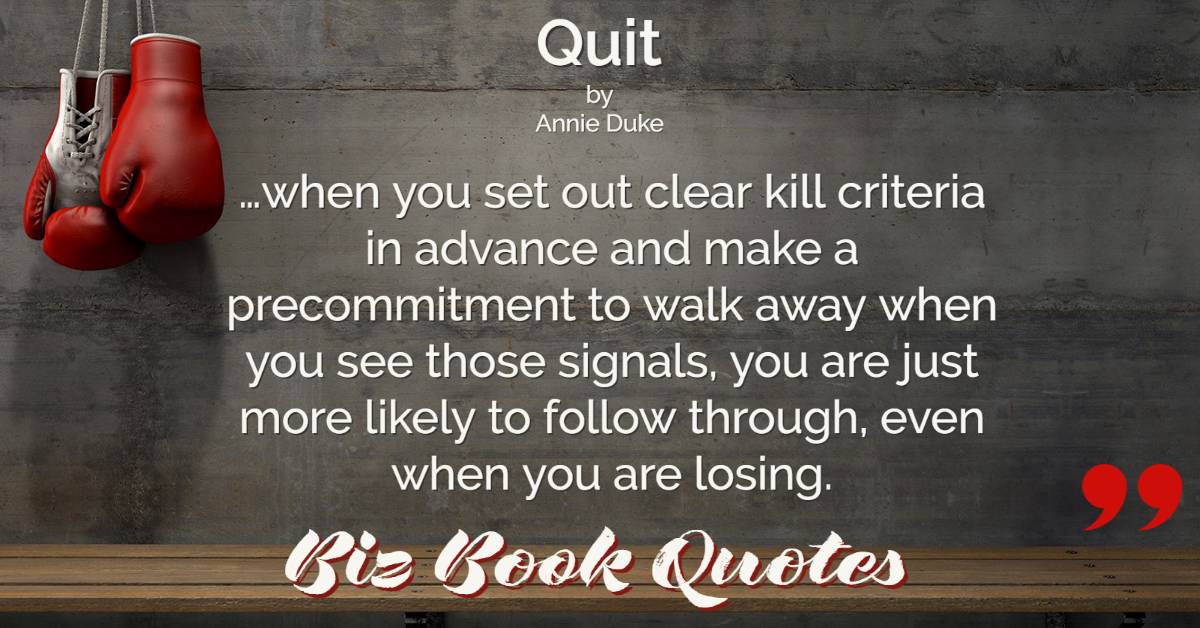
|
Quit:
…when you set out clear kill criteria in advance and make a precommitment to walk away when you see those signals, you are just more likely to follow through, even when you are losing.
|
127 |
|
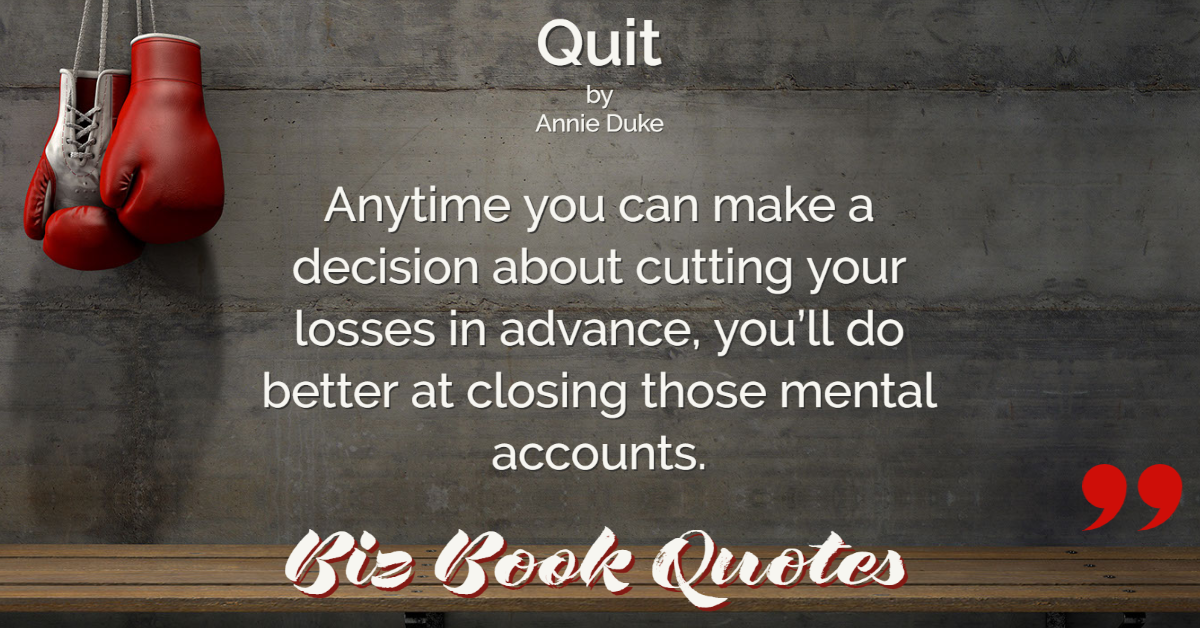
|
Quit:
Anytime you can make a decision about cutting your losses in advance, you’ll do better at closing those mental accounts.
|
127 |
|
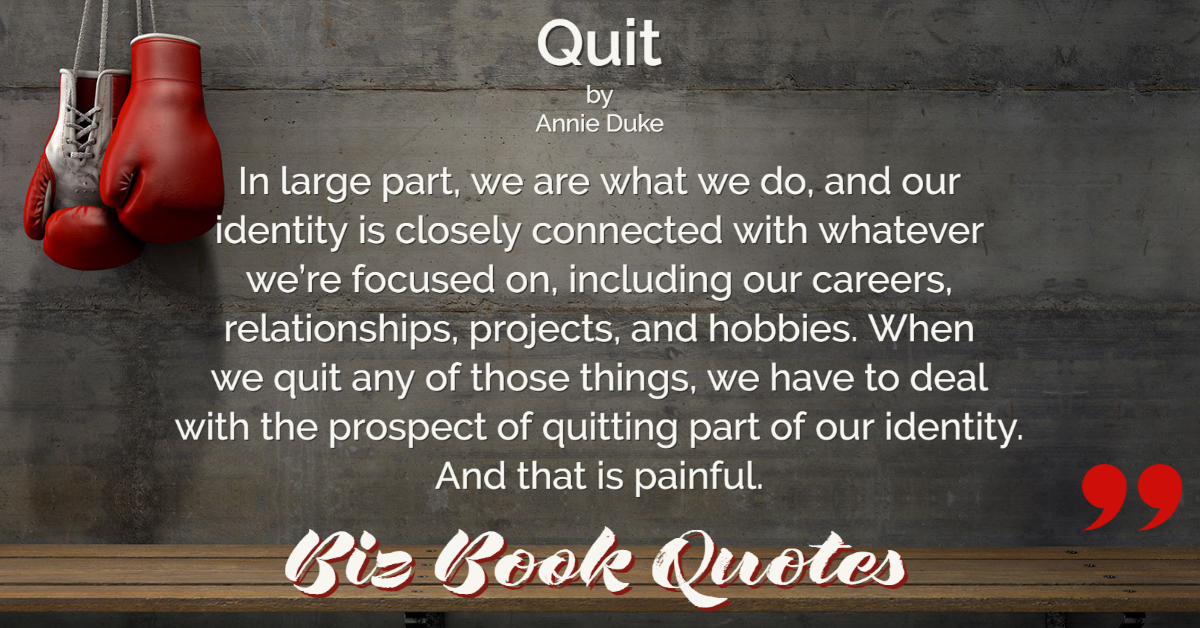
|
Quit:
In large part, we are what we do, and our identity is closely connected with whatever we’re focused on, including our careers, relationships, projects, and hobbies. When we quit any of those things, we have to deal with the prospect of quitting part of our identity. And that is painful.
|
132 |
|
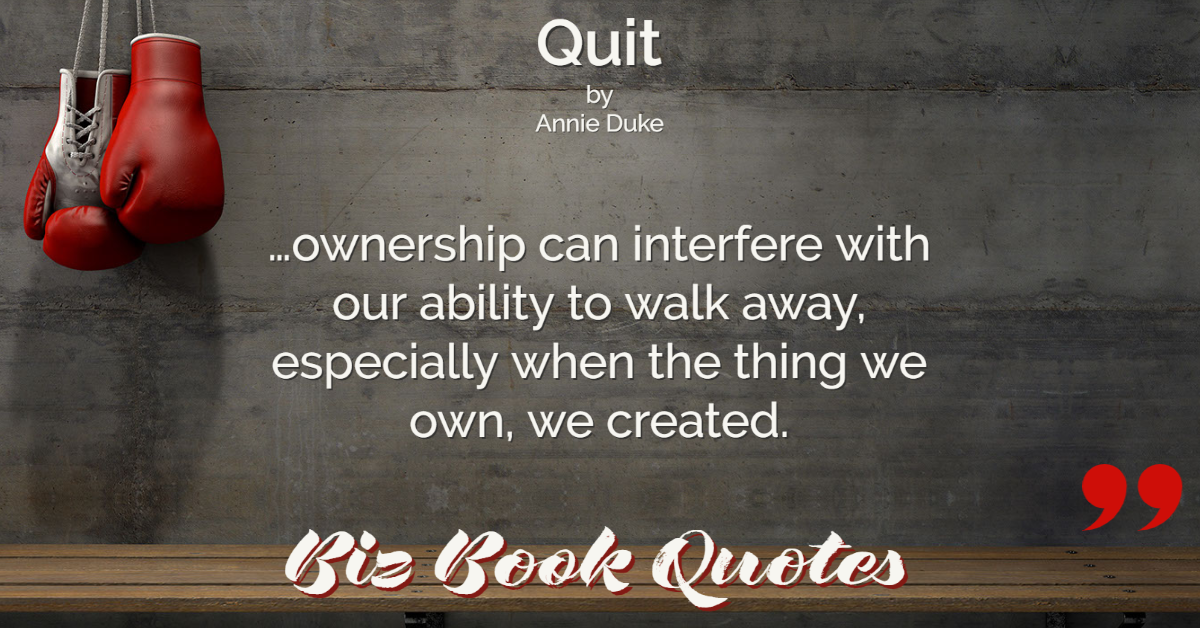
|
Quit:
…ownership can interfere with our ability to walk away, especially when the thing we own, we created.
|
140 |
|
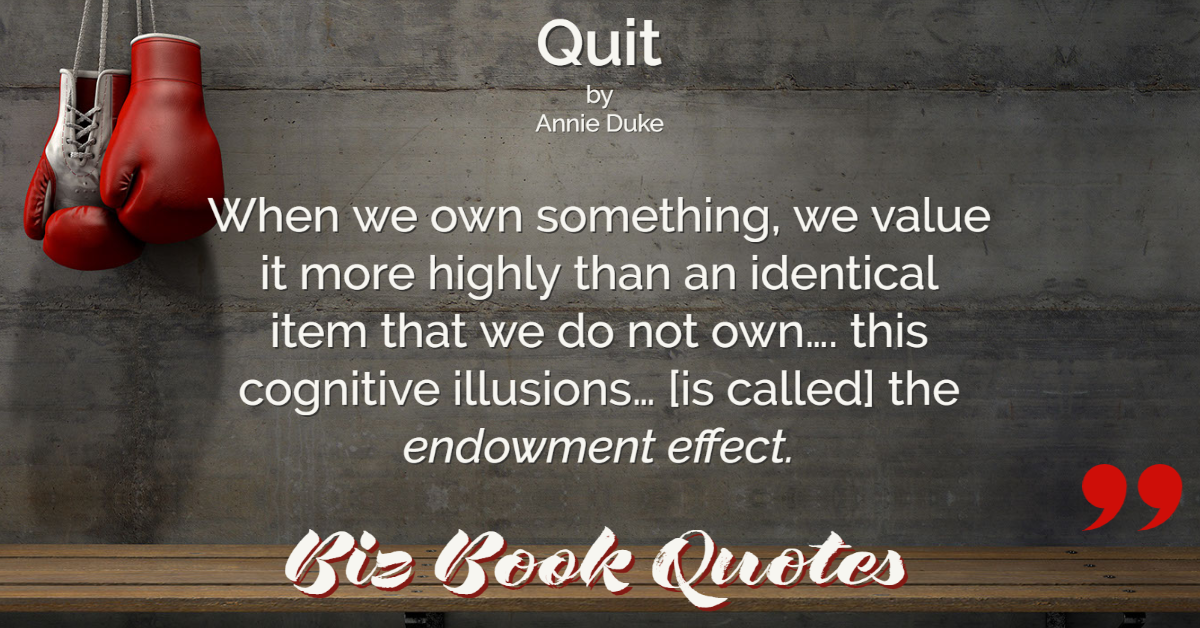
|
Quit:
When we own something, we value it more highly than an identical item that we do not own…. this cognitive illusions… [is called] the endowment effect.
|
140 |
|
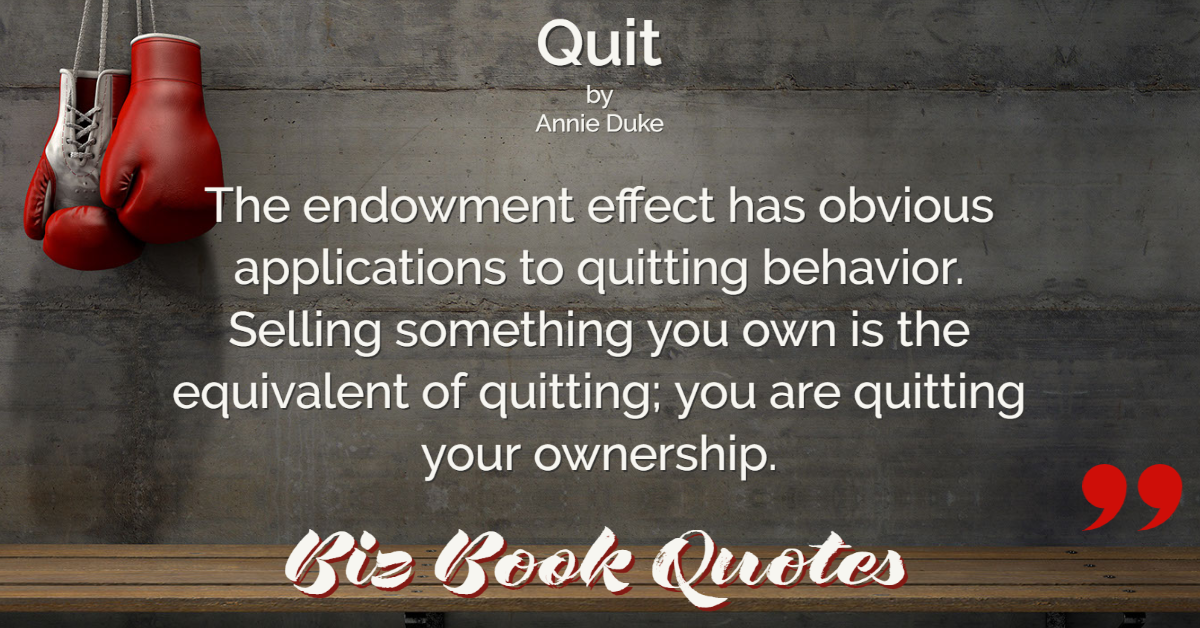
|
Quit:
The endowment effect has obvious applications to quitting behavior. Selling something you own is the equivalent of quitting; you are quitting your ownership.
|
143 |
|
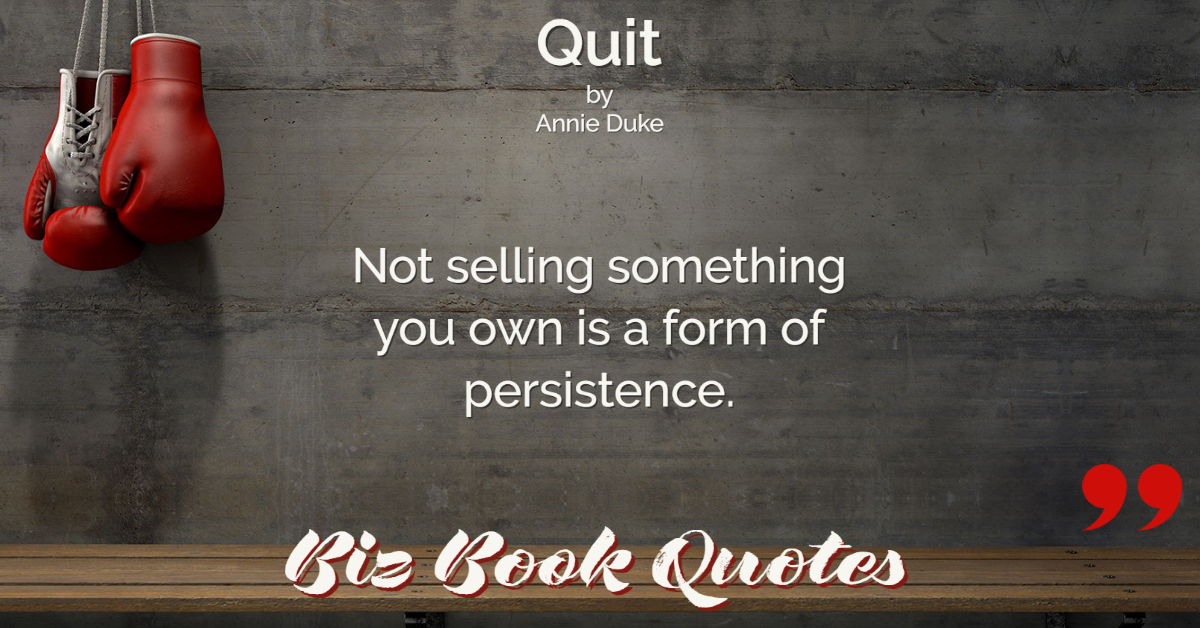
|
Quit:
Not selling something you own is a form of persistence.
|
143 |
|

|
Quit:
When we commit to a course of action, it means that, in some sense, we now own that decision.
|
144 |
|
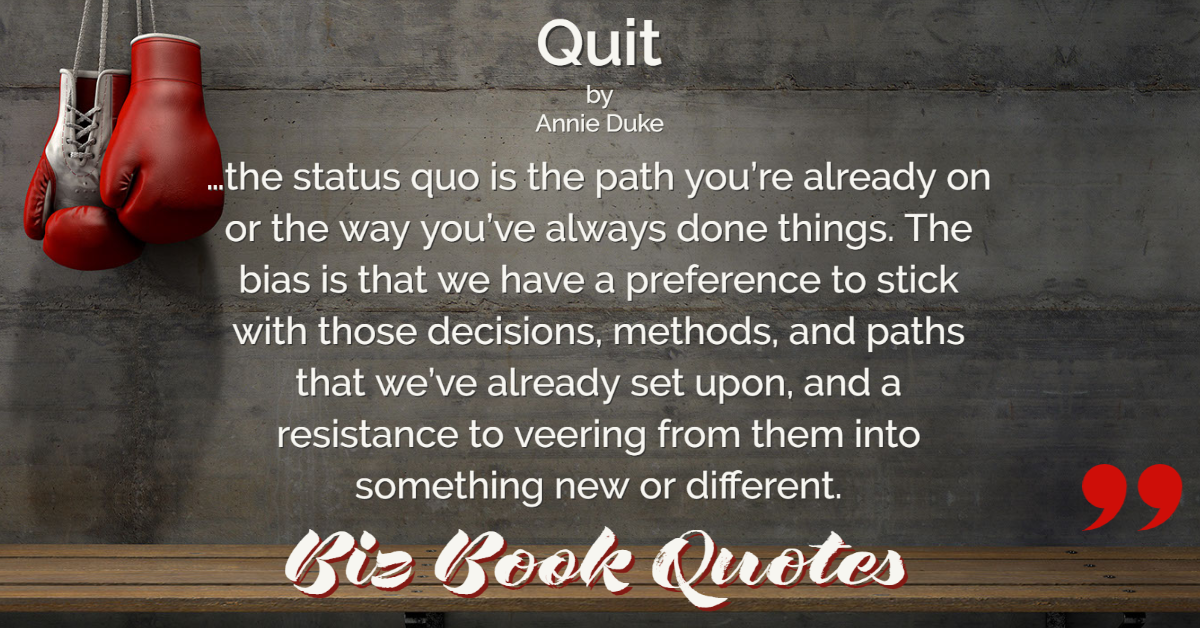
|
Quit:
…the status quo is the path you’re already on or the way you’ve always done things. The bias is that we have a preference to stick with those decisions, methods, and paths that we’ve already set upon, and a resistance to veering from them into something new or different.
|
150 |
|
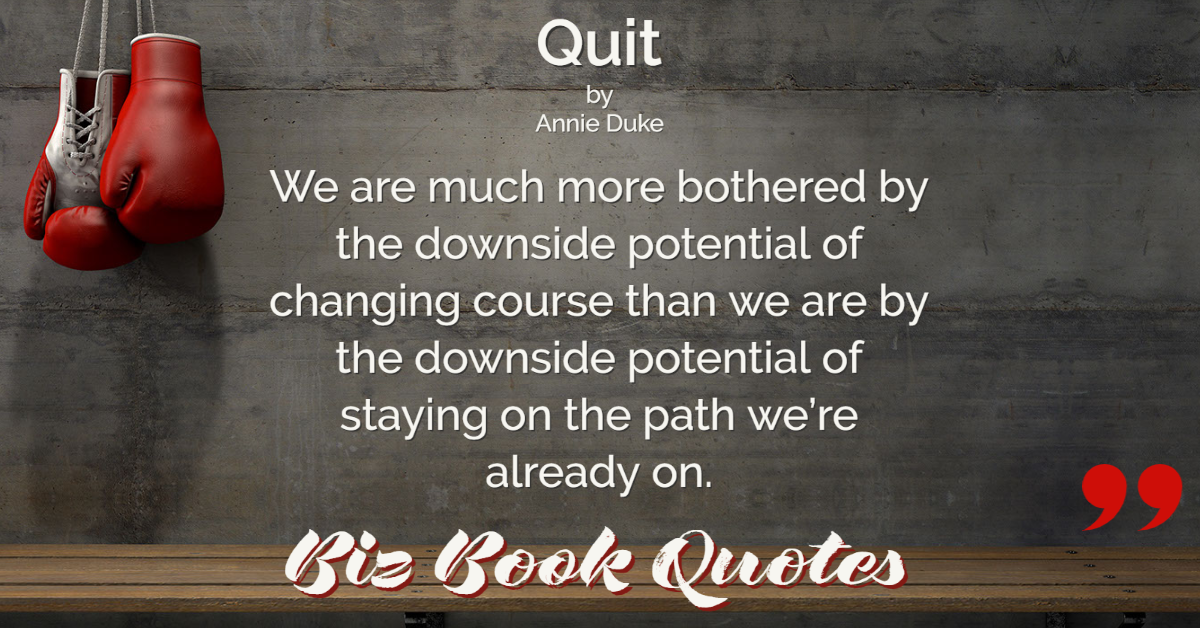
|
Quit:
We are much more bothered by the downside potential of changing course than we are by the downside potential of staying on the path we’re already on.
|
151 |
